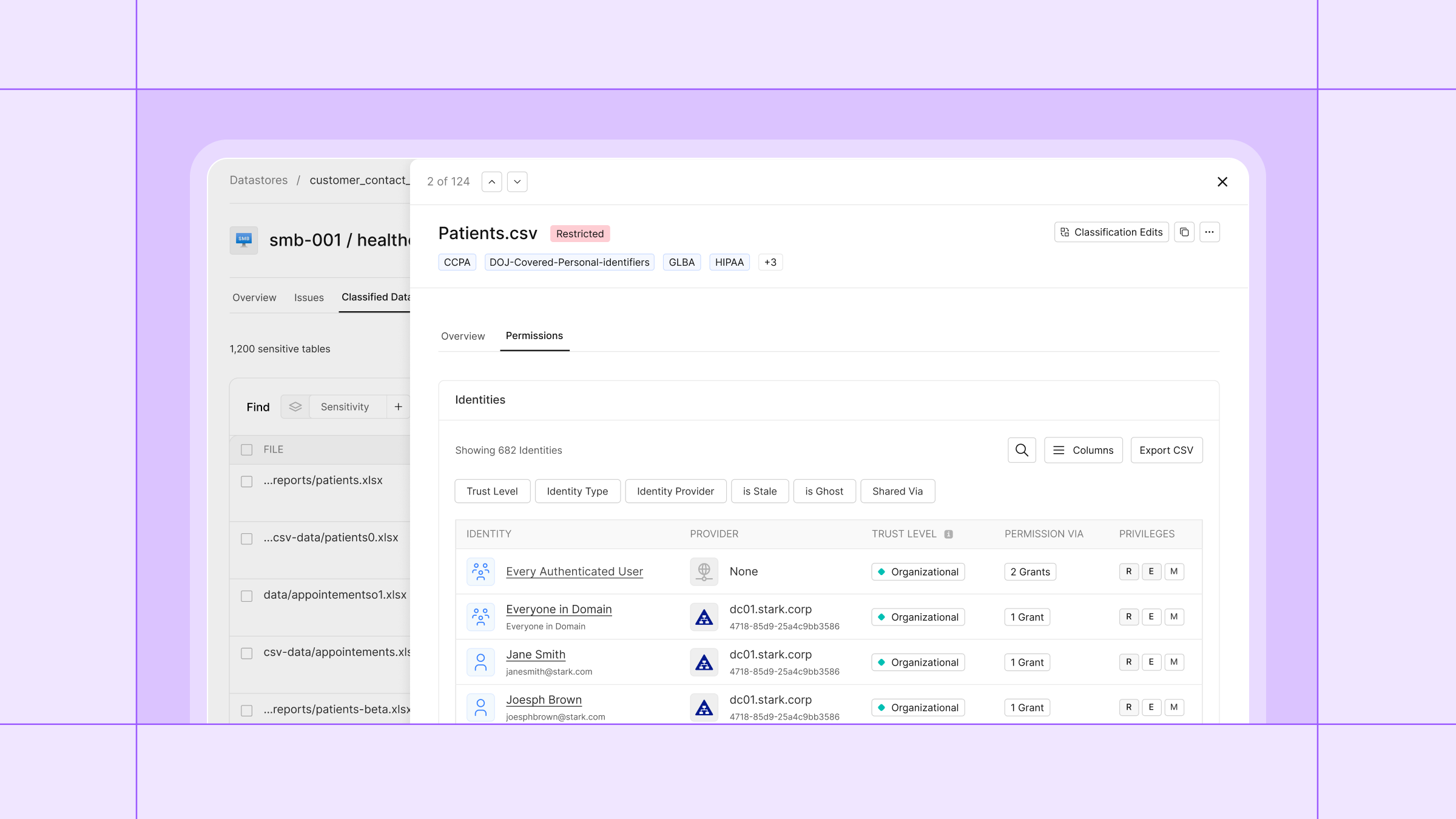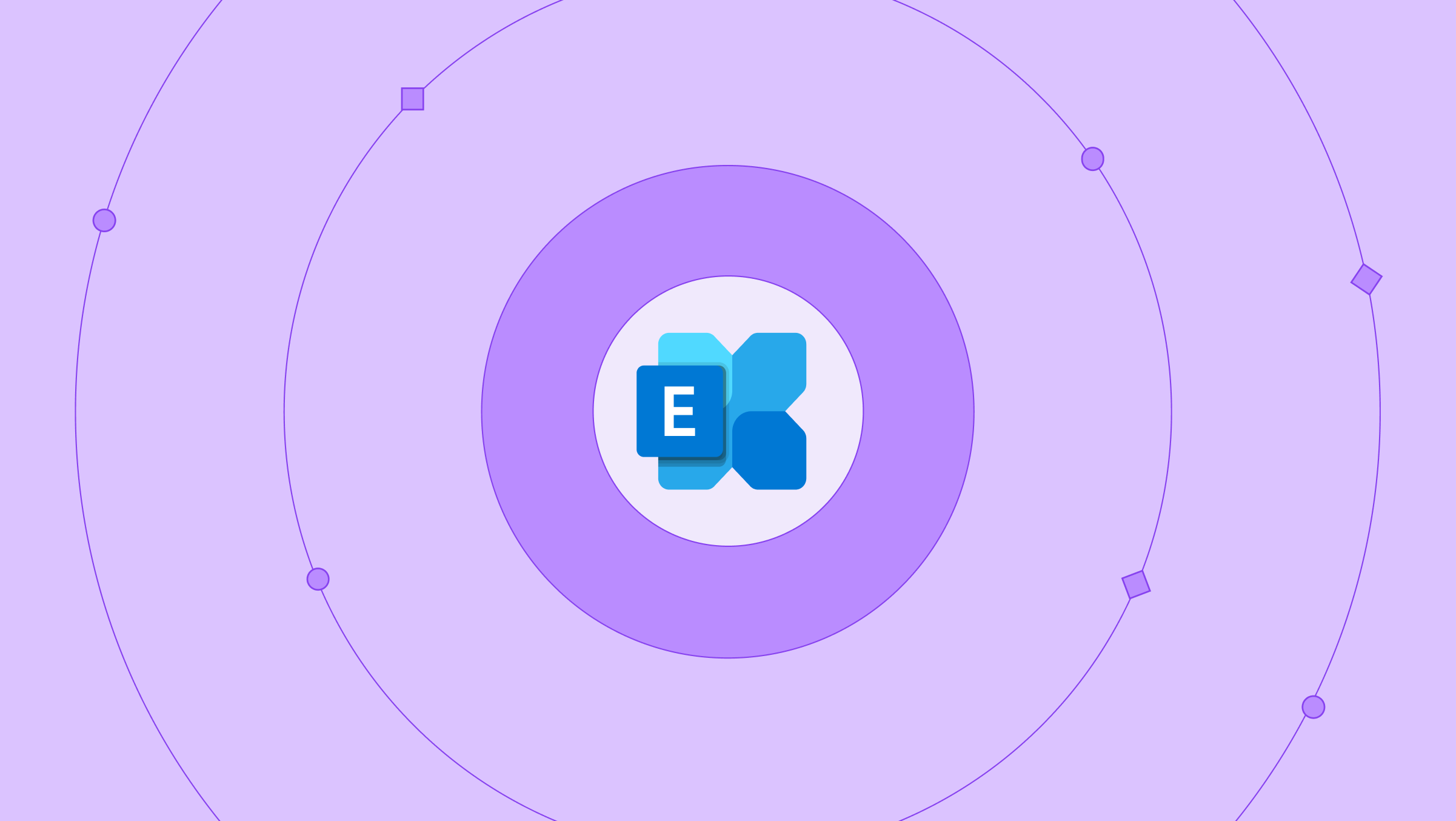Integrating DSPM with Existing Security Frameworks

Many organizations look to the most popular security frameworks to guide their cybersecurity strategies, but the growing challenges and complexity of modern data security often requires new solutions. That’s why a new category of data security posture management (DSPM) tools has become a critical component of a modern enterprise data security program.
DSPM vendors offer solutions to discover, classify, monitor, and protect data across all cloud and on-premise environments. Organizations can maximize the effectiveness of DSPM by integrating it with existing security tools and frameworks, which creates a unified strategy for protecting data and streamlining compliance.
Read on to learn more about the role of DSPM in modern data security, and how DSPM vendors provide capabilities that enhance existing security frameworks.
The Role of DSPM in Modern Data Security
DSPM has become the fastest growing security category because many enterprises are dissatisfied with their current security tools and recognize the need for an intelligent, data-centric solution to make data safely accessible for business use cases.
Here’s how DSPM addresses modern data security challenges:
Automated Data Discovery
Many enterprises have sprawling data landscapes and lack visibility into what data they have, especially as more organizations continue to migrate data to dynamic cloud environments. Shadow IT and unmanaged assets also create blindspots that traditional security tools sometimes miss.
DSPM enables organizations to automatically discover data across all their cloud and on-premise environments, including emerging AI tools and unmanaged dark data. By creating a complete data inventory, security teams can implement better controls to prevent data exposure and misuse.
Advanced Data Classification
Organizations often struggle to know whether their data is sensitive using traditional and manual classification methods. Many AI tools and SaaS applications also ingest and generate large amounts of unstructured data that’s difficult to understand and categorize. This makes it challenging for security teams to prioritize the protection of sensitive data.
DSPMs use advanced classification techniques — with some DSPM vendors leveraging proprietary LLM algorithms — to determine the risk profile of corporate data. This allows organizations to understand data sensitivity and apply appropriate security measures.
Real-Team Risk Monitoring
Data is constantly evolving and sometimes becomes more sensitive over time depending on where it’s stored, who is accessing it, and for what purpose. Without continuous monitoring, organizations risk missing critical changes to data sensitivity and exposure to emerging threats.
DSPM tools continuously track data movements, usage patterns, and other data points to identify anomalies and suspicious behavior. By providing real time insights and accurate alerts, DSPM helps security teams prioritize resources and respond to threats faster. Automated alerts — based on deep contextual information — enable proactive remediation of data security risks before they become an incident.
Access Governance
Inadequate identity and access management (IAM) is one of the most common causes of data leaks and breaches. By correlating access patterns with data sensitivity, DSPM can provide actionable insights for implementing and enforcing effective IAM policies.
More specifically, DSPM can automatically recommend security policies to enforce least-privileged access, which reduces the risk of insider threats and unauthorized data exposure without limiting access to information for those who need it. This includes minimizing the risks of AI tools and other non-human identities that might have access to sensitive data.
Compliance & Data Privacy
Global data privacy regulations are becoming increasingly complex, with unique requirements across different jurisdictions and industries. DSPM simplifies compliance by providing visibility into data privacy risks and flagging potential violations.
An effective DSPM solution can track the storage of personally identifiable information (PII), data residency requirements, cross-border data transfers, and more. This automated approach to data privacy reduces manual audit work and ensures compliance with evolving regulatory requirements.
Key Security Frameworks Enhanced by DSPM
Cybersecurity frameworks provide guidance to help enterprises reduce their risks of security incidents and data breaches. DSPM solutions enable organizations to implement many of the best practices from various security frameworks and enhance the effectiveness of existing security tools.
Here are some of the most common security frameworks:
- The NIST Cybersecurity Framework (CSF 2.0) is a set of security best practices with six key functions: Govern, Identify, Protect, Detect, Respond, and Recover. DSPMs can help organizations implement NIST CSF practices by creating an inventory of sensitive data and continuously monitoring for data exposures.
- The Control Objectives for Information and Related Technologies (COBIT 2019) is a framework for IT governance and risk management that focuses on aligning business objectives with security. DSPM supports COBIT by providing in-depth visibility into potential data security risks so that businesses can invest resources into mitigating them.
- ISO/IEC 27001 is a standard and certification for information security management. It emphasizes data classification based on criticality, sensitivity, and regulatory requirements. DSPM helps organizations meet ISO 27001 requirements by automating data discovery, risk assessment, and real time monitoring.
- DAMA Data Management Body of Knowledge (DAMA-DMBOK) provides best practices for data governance, including data quality, lifecycle management, and security. DSPMs can improve data security and data store hygiene by providing an accurate data inventory and facilitating data minimization to reduce attack surfaces.
- Zero Trust is a security strategy focused on verifying every access request to ensure only authorized users can interact with sensitive data. DSPM can integrate with a zero trust architecture by accurately discovering and classifying data, which enables organizations to apply targeted access controls based on deep contextual insight about their data.
Many enterprises aim to implement more than one security framework, but face challenges related to overlapping or conflicting requirements. DSPM can help organizations maintain a unified security posture by automatically mapping data classification rules and access governance policies to different frameworks.
DSPMs can also automatically generate reports and audit trails for multiple security frameworks and privacy regulations simultaneously. These capabilities eliminate redundant effort and simplify compliance with complex and evolving global regulations.
Cyera: An Innovative DSPM Vendor & Data Security Expert
Cyera is a leading DSPM vendor with a team of experienced data security professionals. Our AI-Native DSPM Platform helps you discover, classify, and protect your data across all cloud and on-premise environments. This means Cyera gives you a comprehensive view of your data security posture and evaluates your compliance with multiple regulations.
Key capabilities of Cyera include:
- Automated data discovery to build a complete inventory of your data estate across all environments.
- Data classification using intelligent algorithms with 95% precision.
- Real-time monitoring of data risks and potential exposures.
- Streamlines compliance with data regulation by flagging potential violations.
- An Identity Module for implementing granular data access controls.
- Data detect and response capabilities that consolidate and correlate risk signals that can be acted on immediately’
In addition, you can work with dedicated data security experts at Cyera to build a custom plan to identify and close vulnerabilities. Our data risk assessment helps you evaluate your data security based on 30+ critical controls derived from frameworks like ISO 27001, NIST CSF, and more. This includes a detailed analysis of your current security baseline and actionable insights to enhance your data security posture.
Schedule a demo to discover if Cyera is the right DSPM vendor for your data security needs.
Gain full visibility
with our Data Risk Assessment.



